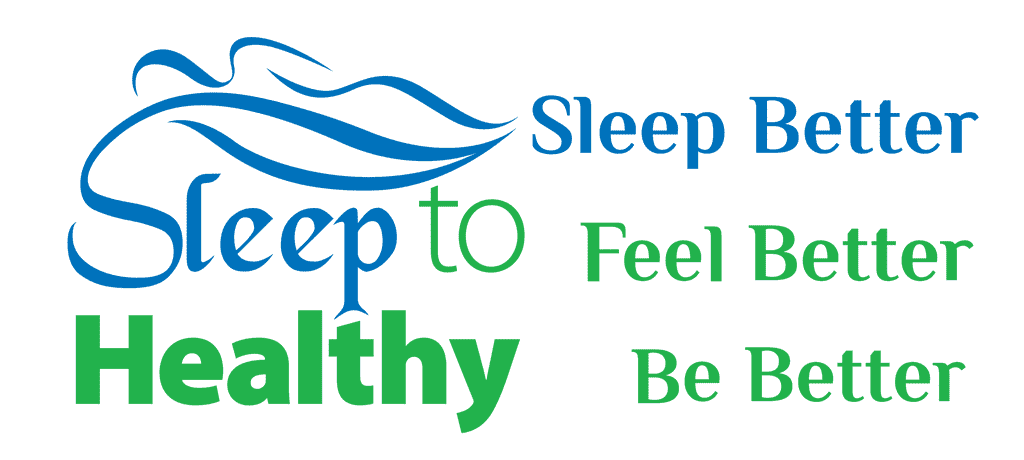Click title to see more…
The Sleep to Healthy website is now a 10 lesson course on curing insomnia.
This course is not a quick fix and it is not easy. The course is based on CBTi or Cognitive Behavioral Therapy for Insomnia. CBTi is the first-line insomnia treatment method endorsed by:
- The U.S. National Institute of Health and
- The British Association of Psycho-pharmacology.
- The American Academy of Sleep Medicine.
By the end of the “Cure Insomnia” course, students will have the knowledge and tools they need to cure their insomnia. Not just now, but for a lifetime.
Did I mention that it’s free?
Go to SleepToHealthy.com to get started.
Summary: Guest: Dr. Neil Stanley , author of “How to Sleep Well: The science of sleeping smarter, living better and being productive” discusses:
- How sleep is critical to proper weight control.
- The ways sleep impacts our relationships.
- The essential need for sleep for children.
- The three basic elements to prepare for a good night’s sleep and sleep well.
- Why sharing your bed with a partner could be a major sleep disruptor.
Links mentioned in the show:
Dr. Stanley’s Website: http://thesleepconsultancy.com/
Book: How to Sleep Well: The science of sleeping smarter, living better and being productive https://www.amazon.com/How-Sleep-Well-Neil-Stanley/dp/0857087681
Twitter: https://twitter.com/drneilstanley @drneilstanley
Show notes with time they occur in the episode:
3:10 – Sleep and weight control. The more sleepy you are, the more likely you are to consume calories. First, when you are sleepy you crave sugary and fatty foods. With an increase of about 33%. And a 24% increase in appetite overall. You have an increase in a hormone called ghrelin. It tells your body to eat, it is the appetite hormone. And you have a resistance to leptin. It is the hormone that tells you that you are full. So when you’re sleepy, you want to eat, you want to eat sugary and fatty foods, you eat them and you keep eating them because you don’t feel full. One night of poor sleep will increase consumption of calories the next day between 400 and 1000 calories. People that are sleepy put more seasoning on. And they eat fewer vegetables. Weight control can also require motivation, and sleep deprivation results in lower willpower. We are less able to think about longer-term payoffs such as weight control. And this crosses over to exercise which is also required for weight control because we are less motivated to exercise. Sleepy people have a 75% higher chance of having a sports-related injury. Dr. Stanley uses a well-being triangle with nutrition, exercise and sleep. Sleep supports both. The most important thing is they get a good night’s sleep and then the other two will be much easier to control.
7:20 – Sleep and relationships. We show less empathy, we have more negativity, more negative feelings towards our partner, we’re more irritable, we’re quick to lose our temper. We need REM sleep to handle the emotional content of Our Lives. With children, they express their thoughts through their behavior since they don’t have the words, so sleep can adversely affect their behavior. When we are sleep deprived we don’t judge other people’s actions or tone of voice or social cues as well. Even our sense of humor is affected where a humorous remark can be misinterpreted. The adult will argue more with a child if they are not well rested. In a couple, if just one partner does not have adequate sleep and it affects their relationship negatively the next day. People with sleep problems have a higher rate of divorce. There’s more conflict in the workplace if the workers are sleepy. Staff can be more dishonest at work if they lack sleep. Workers can spot if their manager is sleepy and they will be more demotivated. So it is fundamental to for avoiding conflict.
13:10 – Children and sleep. Good sleep is fundamental to every aspect of a child’s development. Memory, learning, growth. Every important aspect of a development of a child occurs during sleep. If a six-year-old is deprived 45 minutes of sleep it affects their behavior, performance in school. And the six-year-old child needs 10 to 12 hours sleep at night so 45 minutes is not a big change in their amount of sleep. They have a lot more of the deep slow-wave sleep so they don’t wake up. A newborn needs 16 to 20 hours of sleep, a 10 year old needs about 10 hours. You can draw a line between those two points to get a good prediction. A four-year-old needs to daytime naps, a six-year-old needs one daytime nap. Some parents think that if a child is sleeping that it’s missing out on important aspects of its life, but nothing could be further from the truth. They need sleep time to process all the stimulation they get during the day. There’s no magic to it, a bath and a story or lullaby and put them to sleep. They need to be comfortable and feel safe. Our grandparents did not have trouble putting their children to sleep, it is a modern phenomena. In their preteens they start to be more like adults in their sleep needs. Teenagers are different and teenagers are odd. They’re going through puberty and physical and relationship changes so they need more sleep than adults. But they are odd in that they need to go to bed later than adults as there’s a shift in their circadian rhythm. The shift is at most 2 hours. They should be going to bed around 11 or 11:30 and sleeping for 9 or 9 and 1/2 hours. A teenager who says they can’t get out of bed at 9 in the morning might be telling the truth.
18:10 – The three basic principles to get a good sleep if you think I can’t sleep or wonder why can’t I sleep. We should not make it overly complex. It is a simple solution to a simple problem. Dr. Stanley has shared thousands of sleep tips on his Twitter feed which is @drneilstanley, but they all fall into three categories. The first is a bedroom that is conducive to sleep, one that is dark, quiet, cool, comfortable. In many European countries the bedroom is often called The Sleep room which is probably a better term. All you should do there is sleep, nothing else. Besides sex. If you’re not sleeping, you should not be in your bedroom. Dark means truly dark, blackout curtains or an eye mask. Even LED lights should be covered up to get a good sleep. Quiet means 35 decibels occasionally going up to 45 decibels. Large truck going by on the street will be about 70 decibels. If you’re in an air-conditioned office and everybody stayed quiet, that would be about 35 decibels. snoring is 75 to 95 decibels. There are comfortable earplugs. Cool is 16 to 18 degrees centigrade, which is around 65 degrees Fahrenheit. You need to be able to lose one degree of body temperature overnight, and most of the heat is lost through the skin exposed on the face. So you can leave the temperature at a low setting overnight. For comfortable you need to invest in a good bed. You spend more time in your bed than anywhere else in your life, by the time you’re 70 you will have spent 220,000 hours in a bed versus 80,000 working. Our bodies are different, so you should try out lots of beds thoroughly, and avoid a one-size-fits-all solution such as ordering through the internet.
24:20 – The next is a relaxed body. It may not be how you cure insomnia, but it will help you to sleep well. You need to be physical during the day, preferably outside in the fresh air, and it doesn’t have to be going to the gym or running. And third, you need to have a quiet mind. If your mind is racing, if you are worried, if you were angry, if you are ruminating, if you’re thinking then you will not get to sleep. So you need to find a way that quietens in your mind, it doesn’t matter what it is, as long as it quietens your mind then that is the right solution for you. It should be similar to a childhood read routine, such as bath, book, bed.
28:20 – Dr. Stanley talks about partners sharing a bed and how to sleep well. It may be why I can’t sleep. We think that if we don’t sleep with our parent partner, then our relationship is in peril. Historically we have had many different sleeping arrangements from sleeping in groups together, to having separate rooms and beds. The rich historically never slept together. It was in the Victorian era when sleeping together started becoming more normal. It was only after the second World War that double beds became popular. 25% of people don’t share a bed most nights with their partner. Lack of intimacy may suggest a problem with your relationship. Sleeping apart does not. It is a mature pragmatic solution to a problem. In 2005 Dr Stanley produced the paper that showed that much of our sleep disturbance is caused by our partner. It may be a sleep solution for you and help you sleep well. If you sleep with your partner and you are getting a good night sleep, then there isn’t a problem to be solved.
34:10 – One thing that we could do today to sleep better tonight and feel better tomorrow. The most important thing is that we need to treasure sleep. We sleep at the end of the day because we have to, not because we want to. Then you will start doing the behaviors that you need to do to get a good night’s sleep.
36:10 – Resources that dr. Stanley has available to help people sleep better. His book How to Sleep Well available wherever fine books are sold. His website that has a lot of information that is not in the book is http://thesleepconsultancy.com/. On Twitter where he posts a sleep tip a day @drneilstanley https://twitter.com/drneilstanley .



Sleep To Healthy Thoughts